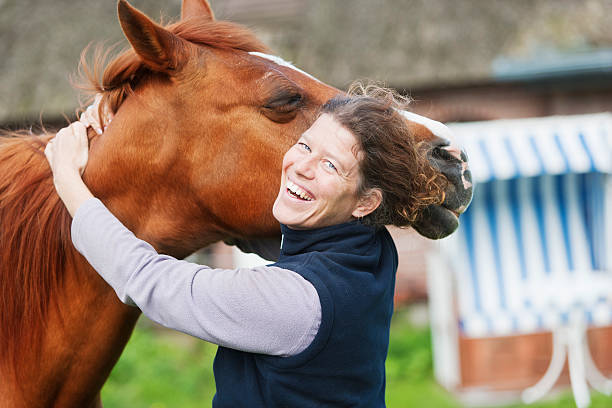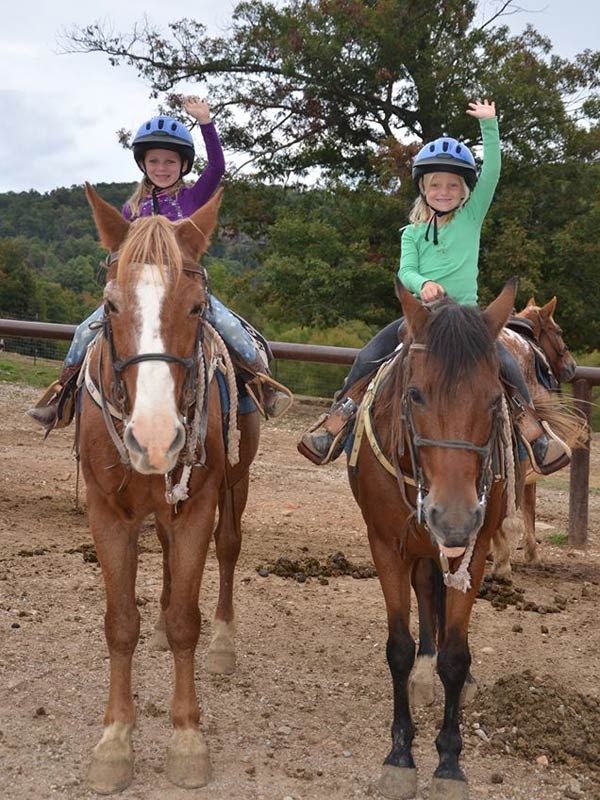Caitlin Mahoney, M.S., TLLP
Using horses in mental health treatment may sound like a strange idea, but as a lifelong horsewoman, when I found out about equine assisted psychotherapy it made perfect sense. There is nothing I find more relaxing than going to the barn, smelling the fresh air, and experiencing the connections that I have created with my horse and fellow barn mates. My personal experiences with horses have led me to develop skills in managing my anxiety and recognizing emotions in others. Merging my interests in horses and psychology was a natural progression of my career and brought me to McCaskill Family Services as their new equine-assisted psychotherapist.

Within the therapeutic context, the experience with horses is different from the average petting zoo or trail ride. Equine Assisted Psychotherapy (EAP) focuses on the connection between the participant and therapy horse and is facilitated by a mental health professional. During the session, the mental health professional makes observations on the clients and horses' interactions with one another, drawing parallels between what is happening in the arena with the clients outside life and environment. Horses are incredibly observant animals and pick up on the energy of the people around them. This is due to them being herd animals and needing to sense how their herd mates are feeling in case there is danger the herd needs to flee. This instinct is still present in the therapy session and the mental health provider that has knowledge of both client and equine behavior can point out when a client’s behavior and mood may be impacting the horse’s own. The horse’s talent for reading social cues makes them excellent agents for clients that are socially anxious, depressed, or have autism spectrum disorder as social skills and communication can be developed in a less stressful social environment. An interaction with a horse does not require the same social reciprocity of a conversation with a human, yet helps develop skills that can generalize to human interactions through practice such as trust, assertiveness, respect, emotion recognition, and self-concept. Like humans, horses set boundaries (by pinning their ears or fast, abrupt tail swishes) and show contentment (flopping their ears and licking and chewing) but with more visible cues that are easier to pick up for clients working on social skills. The arena creates a safe place for clients to test out social skills they have learned in talk therapy sessions in a lower-stakes real world environment without social judgment from others.
EAP can also be beneficial for clients who have experienced trauma. In a study of veterans with PTSD, approximately 50% of participants saw a reduction in their PTSD symptoms following eight sessions of EAP. Despite horses' large statures, they are safe to confide in and to be around. It can be difficult for someone who has experienced trauma to want to share what they went through with another person, even if they are a mental health care provider. Horses can act as an intermediary by allowing the practitioner to reflect on the client’s experiences with the horse and connect this with what they have gone through. Being with a horse is vulnerable, and the work within EAP can help a client open up and share vulnerabilities with others.
Who can benefit from EAP?
• EAP is used in treatment for a variety of presenting concerns including anxiety, depression, Autism, ADHD, PTSD, substance use disorders, and eating disorders, as well as veterans and survivors of sexual and domestic traumas. EAP is traditionally used in conjunction with office-based talk therapies. EAP can be used with children, adults, couples, and families. This treatment may be beneficial to clients that face difficulty with the nature of talk therapy being focused on conversation due to a social skills issue or prior traumatic experiences. Within an EAP session, the psychotherapist is able to observe the client’s actions and behavior in a real-world setting, putting less pressure on the client to verbalize topics that may be difficult to approach otherwise.
Isn’t EAP just horseback riding?
• EAP can involve riding but not necessarily. The majority of work is done on the ground and is sanctioned by a mental health professional that specializes in EAP. While traditional riding in lessons or on a trail may benefit a client, the purpose of those experiences are not mental health centered or sanctioned by a mental health professional like EAP is. EAP sessions will include groundwork activities with the horse such as obstacle courses, leading, and grooming.
But horses are so big and scary!
• More people are afraid of horses than you may think! A large part of the foundation of EAP is the client stepping out of their comfort zone and trusting a very large animal. This can be intimidating for clients and is all a part of the therapeutic process of EAP and will be discussed with the provider. It can be a confidence booster for clients to work and bond with an animal much larger than themselves. One study found that EAP increased confidence, self-esteem, and assertiveness in adolescents experiencing depression and anxiety.
Check out our MFS website for more information on our Equine programs to fit your specific needs!


